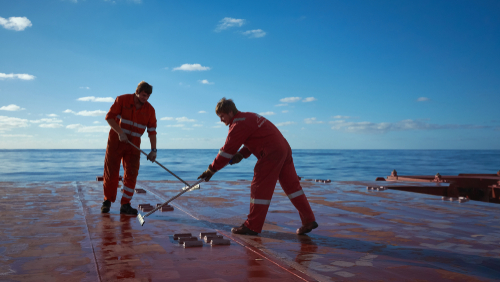
Credit: Shutterstock
New Zealand updated legislation to enable maritime levies on vessels visiting its ports to help fund seafarer welfare services.
This move aims to improve welfare support in ports reflects lobbying undertaken by the Seafarers Welfare Board for New Zealand (NZ SWB).
Commenting on the change, New Zealand’s Minister of Transport Michael Wood, stated that the government will provide secure, stable funding for the critical work of the Seafarer Welfare Centres.
Moreover, Mission to Seafarers’ regional director and Wellington port chaplain The Reverend Lance Lukin, added that the changes to the Maritime Transport Act 1994 were made to allow a portion of the Maritime Safety Levy, also known elsewhere as ‘Light Dues’, to be used to support seafarers’ welfare.
We will be about two-thirds of the way towards ideal funding for our long-term plans with this new funding. Given that we started at the beginning of August 2020 from near enough to zero, the funding is very welcome and being well used
The New Zealand legislation was also welcomed by the Merchant Navy Welfare Board (MNWB), with Deputy chief executive at the MNWB Sharon Coveney, saying that the MNWB encourages the use of the levy system of funding in UK ports following the highly successful examples set in the ports of Humber, Tyne, Tees and Liverpool.
Ms Coveney also noted that seafarers’ and fishers’ welfare was also boosted in May 2021 when the Maritime & Coastguard Agency recognised the MNWB as the UK’s National Seafarers’ Welfare Board after the signing of a formal agreement.
The agreement establishes ways both will work together to coordinate their approach to the provision and improvement of welfare for seafarers and fishers in the UK.
SOURCE READ THE FULL ARTICLE
https://safety4sea.com/new-zealand-sets-international-precedent-with-maritime-levies-to-support-seafarer-welfare-centres/